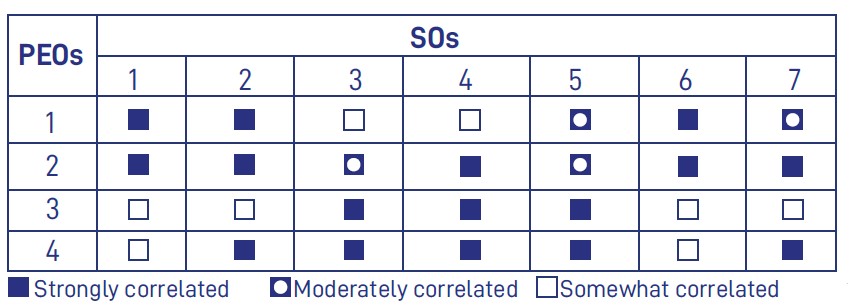Al-Ahliyya Amman University
Program Description
Civil Engineering
Bachelor
The Department of Civil Engineering (CE) at Al Ahliyya Amman University was established in September 2008 to meet the market demand for qualified civil engineers both locally and regionally. The first (44 students) were admitted in the second semester of the academic year 2008/2009. Since then, an increasing number of students is enrolled in the department every year. Our efforts are focused on providing students with the necessary knowledge and experience that enable them to compete in the labor market of the 21st century.
The department has highly qualified and experienced full-time faculty members . The Department of Civil Engineering has a range of well-equipped laboratories including concrete materials, pavement, hydraulics, environmental, surveying and geotechnical.
The department has established a system that conforms to the highest academic standards. In this context, we constantly think about the future and update our B.Sc. program to meet the needs of the market.
Civil Engineering
Number Of Credit Hours
160

Faculty of Engineering
Admission Requirements
Admission requirements of the Bachelor degree in the Civil Engineering program include a High School Certificate or equivalent in the following:
80%
- Scientific
- Scientific - Medical Field
- Scientific - Engineering Field
- Industrial
Job Opportunities

- Civil engineer
- Construction engineer
- Soil and foundations engineer
- Construction materials engineer
- Building implementation engineer
- Bridge maintenance engineer
- Water drainage engineer
- Infrastructure implementation engineer
- Construction evaluation engineer
- Reinforced concrete engineer
- Dams engineer
- Surveying engineer
- Underground water engineer
- Water and wastewater engineer
- Network and rain drainage engineer
- Road and Traffic Safety Engineer
- Road Implementation Engineer
- Traffic engineer
- Methods design engineer
- Public transport planning, operation and management engineer
- Engineer of road pavements and materials and quality control
- Road maintenance engineer
Study Plans and Program Files
Educational Objectives

Program Educational Objectives (PEO's):
- PEO1.Succeed and excel in developing sound solutions to civil engineering problems.
- PEO2.Communicate and work competently in one or more core of civil engineering areas of practice or through graduate studies.
- PEO3.Work effectively, conduct themselves ethically in their professional environment, and grow in their careers working on projects designed for the well-being of their society.
- PEO4.Be aware of contemporary changes, engage in life-long learning in their profession, and acquire professional engineering registration.

Student Outcomes (SO's):
- An ability to identify, formulate, and solve complex engineering problems by applying principles of engineering, science, and mathematics.
- An ability to apply engineering design to produce solutions that meet specified needs with consideration of public health, safety, and welfare, as well as global, cultural, social, environmental, and economic factors.
- An ability to communicate effectively with a range of audiences.
- An ability to recognize ethical and professional responsibilities in engineering situations and make informed judgments, which must consider the impact of engineering solutions in global, economic, environmental, and societal contexts.
- An ability to function effectively on a team whose members together provide leadership, create a collaborative and inclusive environment, establish goals, plan tasks, and meet objectives.
- An ability to develop and conduct appropriate experimentation, analyze and interpret data, and use engineering judgment to draw conclusions.
- An ability to acquire and apply new knowledge as needed, using appropriate learning strategies.
=
Educational Objectives and Students Outcomes:




